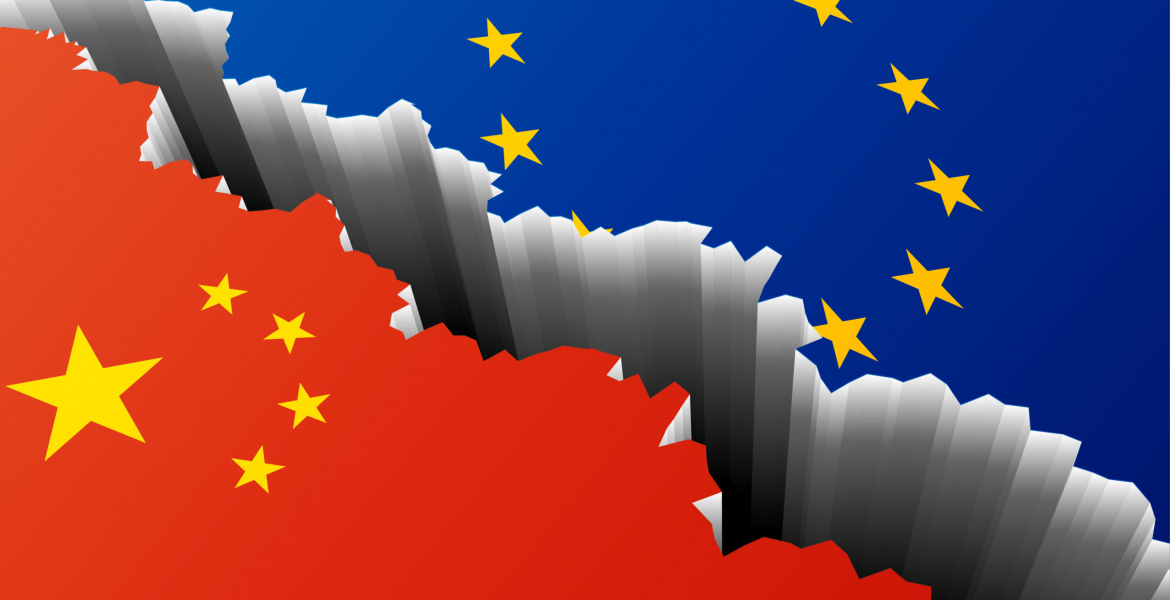As European leaders prepare for talks with China’s Xi Jinping, on Monday 14 September, Datapraxis and YouGov polling commissioned by the foreign policy think-tank, the European Council on Foreign Relations (ECFR), has found that just 7% of Europe’s citizens see China as a “useful” ally in their battle with, and recovery from, COVID-19.
Its new study, based on qualitative interviews in member states, confirms that scepticism of China is on the rise, and that Europeans have seen that, instead of being a constructive international partner, the Chinese leadership in Beijing is increasingly acting against the interests of the EU.
ECFR’s Asia Director, Dr Janka Oertel, believes Europeans are becoming “more distrustful of China’s economic policy”, as a consequence of COVID-19, and urges EU leaders, who will speak with Xi Jinping, next week, to be “decisive and clear” in their dialogue, and to “signal Europe’s willingness to use its competitive strength”.
ECFR’s polling, which was collected in nine EU member states which comprise two-thirds of the European population, found:
- Europeans are aware of China’s efforts to sow discord and division within the EU. As many as 62% of Europeans, in member states such as Denmark and France, reported a deteriorated view of Xi Jinping’s China in ECFR’s polling. Even in Portugal and Spain, which benefited from the delivery of Chinese state-aid during the coronavirus crisis, a plurality noted a negative shift in their view. In eight of nine surveyed countries, the share of respondents who have adopted a more negative view of China in the past year has increased by between a factor of two and a factor of ten. Just 7% of Europeans polled by ECFR in 2020 identified China as their most “useful” ally in their country’s battle with coronavirus.
- Europe’s dependency on Chinese goods, which was exposed during the COVID-19 pandemic, is shifting public attitudes towards developing a more localised and resilient market. ECFR’s polling revealed that there is a growing appetite for bringing the production of key goods back to Europe. In Germany and France, for example, over 50% of citizens would support efforts to concentrate the manufacture of medical supplies to the EU. Around 40% in both countries would also back such a move for non-medical goods. Further to this, just 5% of Europeans polled by ECFR expect China to support their recovery from COVID-19.
- Europeans can see that failing to act together means they risk becoming casualties in a Sino-American game of ‘chicken’. When asked whether the European response to the coronavirus crisis showed that there was a need for more European level cooperation or whether it showed that EU integration had gone too far, majorities in all countries opted for more cooperation. (91% in Portugal, 80% in Spain, 77% in Italy, and 68% in Poland). Even in more sceptical member states, including France (52%), Sweden (51%) and Denmark (53%), more than half of the respondents chose the cooperation option; and just around 20% said the opposite. For Europeans, the COVID-19 crisis has shown that superpowers, such as China and the US, are prepared to manipulate crises to compete with each other.
- Commenting on ECFR’s data, and the EU’s relationship with China ahead of these crucial talks, policy expert and head of ECFR’s Asia programme Janka Oertel said: “For a long time, Europeans were convinced that China had no interest in undermining the EU or its voice on the global stage – primarily because it of its position as a major trading partner for Beijing and its ability to serve as a counterweight in the growing rivalry with the United States. ECFR’s recent coronavirus polling reveals that a much more sceptical position is gradually emerging among Europeans. Europeans are more distrustful of China’ s economic practices and increasing infringements on human rights in Hong Kong and Xinjiang.




